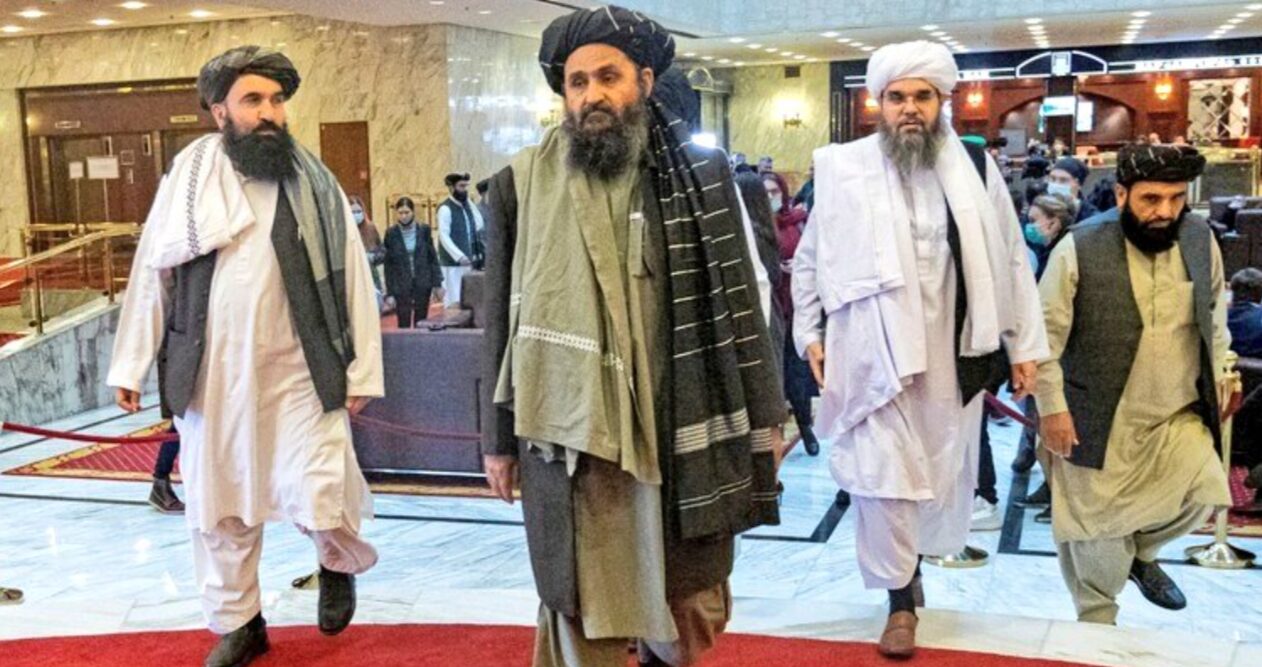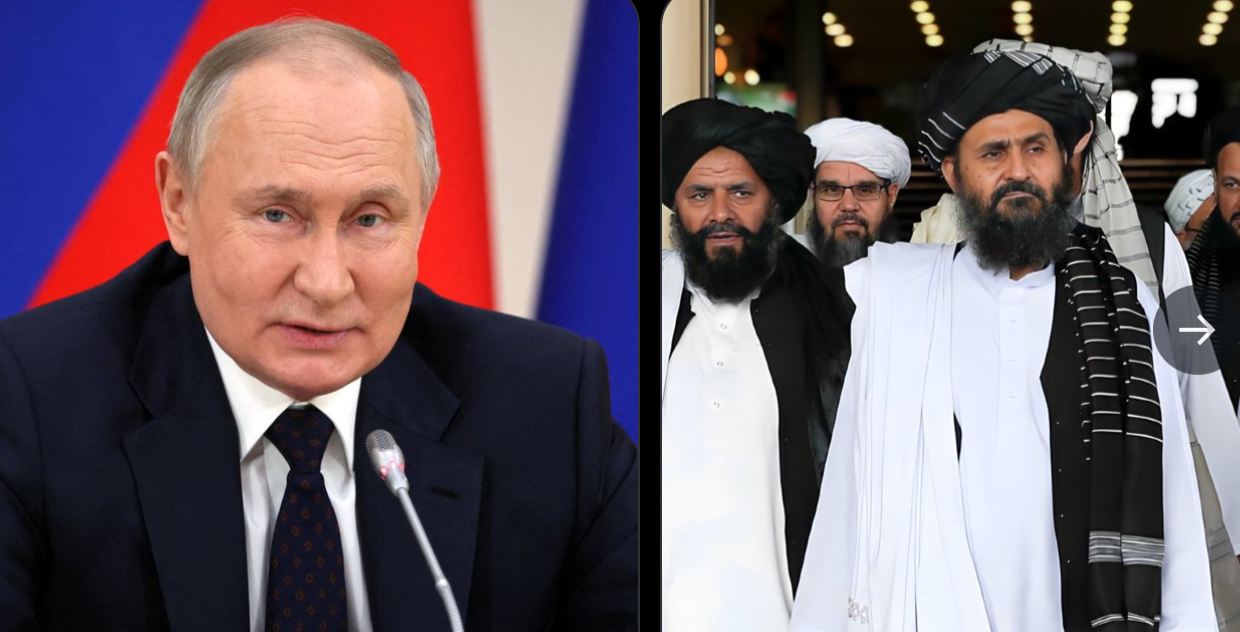Taliban Prevents Forced Marriage in Afghanistan, Cites Sharia Law’s Emphasis on Consent
In a rare but significant intervention, the Taliban in Afghanistan has stopped a father from forcing his 18-year-old daughter to marry a 70-year-old man for money. The incident, which occurred in a rural area of Afghanistan, highlights a complex and often controversial intersection between the Taliban’s interpretation of Sharia law and traditional practices in the country. The Taliban authorities, who have imposed strict interpretations of Islamic law since regaining control of Afghanistan in 2021, emphasized that marriage is sacred under Sharia law and must be entered into with the consent of both parties involved.
The Incident: A Father’s Attempt to Sell His Daughter
The case began when a father attempted to marry off his daughter to a wealthy 70-year-old man in exchange for money. Reports indicate that the father believed that the arrangement would benefit his family financially, which is a common, albeit controversial, practice in some parts of Afghanistan. The bride’s consent was reportedly not sought, and the young woman was forced into the arrangement due to financial pressures and cultural norms that have historically placed women in subordinate roles.
However, when local authorities in the Taliban-controlled region caught wind of the situation, they intervened, citing a clear violation of Sharia law. According to the Taliban, a marriage contract cannot be legitimate unless both the bride and groom willingly agree to it, and it cannot be entered into as a transaction or a financial arrangement.
Taliban’s Stance on Marriage and Sharia Law
Since taking control of Afghanistan, the Taliban has faced international criticism for its strict interpretation of Sharia law, especially concerning women’s rights. Under the Taliban’s rule, women have faced numerous restrictions, including limits on education, employment, and freedom of movement. However, the Taliban’s intervention in this case may suggest that, at least in some circumstances, their interpretation of Sharia law may provide protection against forced marriages, particularly when consent is not present.
Taliban officials have made public statements asserting that under Islamic law, marriage is a sacred contract between two individuals, and both parties must freely agree to the union. This intervention is rooted in the idea that no one should be coerced into marriage, which stands in contrast to the often prevalent practices of forced marriages in Afghanistan and other parts of South Asia, where financial and familial pressures can override the rights and wishes of young women.
A senior Taliban official explained that the agreement between the father and the groom was invalid because it did not take into account the daughter’s autonomy and consent. “In Sharia law, marriage is a sacred bond,” the official stated. “No one, not even a father, has the right to force their daughter into a marriage for financial gain.”
The Cultural Context of Forced Marriages in Afghanistan
The practice of forced marriages for financial reasons is not new to Afghanistan. In some rural areas, families arrange marriages to secure financial stability, with daughters often being married off at young ages to older, wealthier men. These marriages are sometimes seen as economic transactions, where the bride’s family receives dowries or financial compensation in exchange for the daughter’s hand in marriage.
In some parts of Afghanistan, this practice is rooted in centuries-old traditions and is often justified by families who see it as a way to ensure their daughters’ future security or to resolve financial difficulties. Unfortunately, in many cases, the young women involved have little or no agency in the decision-making process, and their wishes are often disregarded.
Despite these cultural norms, forced marriages are increasingly being challenged by human rights advocates, especially as education and awareness about women’s rights continue to grow in some parts of the country. However, progress has been slow, and such practices still persist, particularly in more conservative rural areas.
Women’s Rights Under Taliban Rule
The Taliban’s position on forced marriage has raised questions about the broader treatment of women under their regime. While the Taliban’s interpretation of Sharia law has historically imposed harsh restrictions on women—such as banning them from secondary and higher education, limiting their movement outside the home, and mandating strict dress codes—their actions in this particular case seem to offer some semblance of protection against forced marriage.
However, critics of the Taliban’s rule argue that their interpretation of Sharia law is selective and often serves to justify discriminatory practices. Women’s rights activists have pointed out that while the Taliban’s intervention in this specific case is positive, it does not change the broader reality for women under their control. Women in Afghanistan continue to face severe restrictions, and many believe that these laws do not reflect the true spirit of Islam, which they argue supports gender equality and the rights of women.
Many critics also contend that such interventions are not widespread and that other women and girls still face forced marriages, domestic violence, and other forms of abuse without intervention. Human rights organizations continue to raise alarms about the Taliban’s treatment of women, pointing to systemic violations of their rights, which include restrictions on employment and access to education.
International Reactions and Human Rights Concerns
The Taliban’s actions in this case have sparked mixed reactions from the international community. Some human rights groups have praised the intervention as a step in the right direction, highlighting that the protection of women’s rights should be prioritized. However, many of these organizations also caution that the Taliban’s overall record on women’s rights remains deeply concerning. They point to the ongoing repression of women’s freedoms, including the recent crackdown on protests advocating for women’s rights and the continued closure of girls’ schools in many parts of the country.
Organizations such as the United Nations and Human Rights Watch have urged the Taliban to take more consistent and widespread action to protect women and girls from forced marriages and other forms of gender-based violence. “While this intervention is a positive step, it is crucial that the Taliban address the broader issue of forced marriages across Afghanistan and ensure that all women have the right to live free from coercion and violence,” said a representative from Human Rights Watch.
The international community also remains concerned about the broader humanitarian situation in Afghanistan. With economic collapse, widespread poverty, and continued conflict, many women and girls remain at risk of exploitation, including being sold into marriage for financial reasons. The global response to these issues is mixed, with many countries taking a cautious approach toward engaging with the Taliban, while also pushing for greater human rights protections.
Conclusion: A Step Toward Progress or an Isolated Incident?
While the Taliban’s prevention of a forced marriage in Afghanistan is a rare example of their intervention on behalf of women’s rights, it is also a reminder of the complex and deeply entrenched cultural and legal challenges that women face in the country. The intervention signals that, at least in certain cases, the Taliban’s interpretation of Sharia law may align with the protection of women’s rights, particularly when it comes to the sanctity of marriage and the need for mutual consent.
However, many questions remain about the consistency of this approach and whether it will lead to broader changes in how women and girls are treated under the Taliban’s rule. Human rights advocates continue to call for the protection of women’s rights and freedoms in Afghanistan, pressing for greater efforts to end forced marriages and other forms of abuse. The situation remains fluid, and the international community will continue to monitor developments closely, hoping for further steps toward gender equality in Afghanistan.

















Post Comment